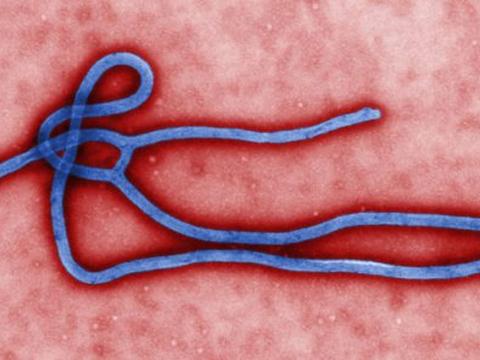By Mabinty M. Kamara
The Kombra Network in Kailahun district has expressed fear over the reopening of the common borders between Sierra Leone and Guinea and calls for massive community sensitization to prevent the spillover of Ebola into Sierra Leone.
Kombra Network is a coalition of Civil Society activists, Religious Leaders, Market Women, Traditional Healers, the media, Community Leaders, Youth Groups and Women’s Groups set up by Focus 1000 to undertake a range of actions to address underlying health issues in communities across the country.
The chairman of Kombra Network in the Kailahun district, Shiekh Tamba Jusu, who is also the head of the Islamic Action Group (IAG), a member organizations of the Network, said the authorities must pay attention to public awareness raising as part of Sierra Leone’s community engagement efforts in response to the threat of the Ebola epidemic across the borders.
“Massive sensitization is what we are asking local authorities to give us support for, and we want them to consider particularly religious leaders to preach to the people through sermons, which is an effective way of appealing to people,” he said in a report by the Kombra Media Network.
The Guinean government last week confirmed the outbreak of the Ebola Virus Disease (EVD), after four people reportedly died after exhibiting symptoms akin to the hemorrhagic fever disease.
As of Thursday, February 17, reports indicated that the death toll had increased to five, as health authorities struggle to prevent widespread transmission.
The World Health organization has issued an alert to six countries neighboring Guinea, which are said to be at high risk of transmission of the virus in the event the epidemic gets out of hand. These countries include Guinea’s MRU neighbors - Sierra Leone, Liberia and Cote d’Ivoire, as well as Senegal and Guinea Bissau.
The latest Ebola outbreak in Guinea comes nearly five years after the end of the 2014-2016 West African Ebola epidemic, which also began in Guinea and spread to nine other countries across the world, including Liberia and Sierra Leone.
The three MRU countries were the worst affected, as they accounted for most of the cases (nearly 30, 000) and fatalities (over 11, 000).
The Ministry of Health and Sanitation (MoHS) has vowed to do all it can to prevent the spillover of the epidemic into Sierra Leonean territory. It says it has deployed rapid response teams on the ground in border communities like Kailahun.
But the development comes amidst talks between Sierra Leone and Guinea governments to reopen their borders after a dispute led to their prolonged closure. The borders were reopened on Thursday, February 18.
Jusu said while re-opening of the borders is good news, it also posed a problem in light of the re-emergence of Ebola, hence the need for sensitization and enforcement of regulations.
Jusu said the Kailahun authorities wasted no time to jump into action, thereby developing key messages on Infection Prevention Control (IPC).
IPC materials have also been provided at most official crossing points, and that Stakeholders meeting is being convened three times in a week to discuss implementation of the measures.
But Jusus says despite all this, the reopening of the border has made the job more complicated and requires more attention to control movement across the borders.
“Strategies are there in place, but we still see the border issue as unfortunate,” he said.
He added: “We cannot do anything about it because it is an agreement between the leaders, but that has increased the work on us, because we have a lot of porous borders. At the moment the Moa River is such that people can even cross it by foot.”
The 2014 outbreak entered Sierra Leone through Kailahun, which is close to Guinea’s Forest Region. According to local authorities, there are multiple illegal border crossing points between the two countries at that end. And this, Mr Jusu, says is a major concern.
Copyright © 2021 Politico Online








